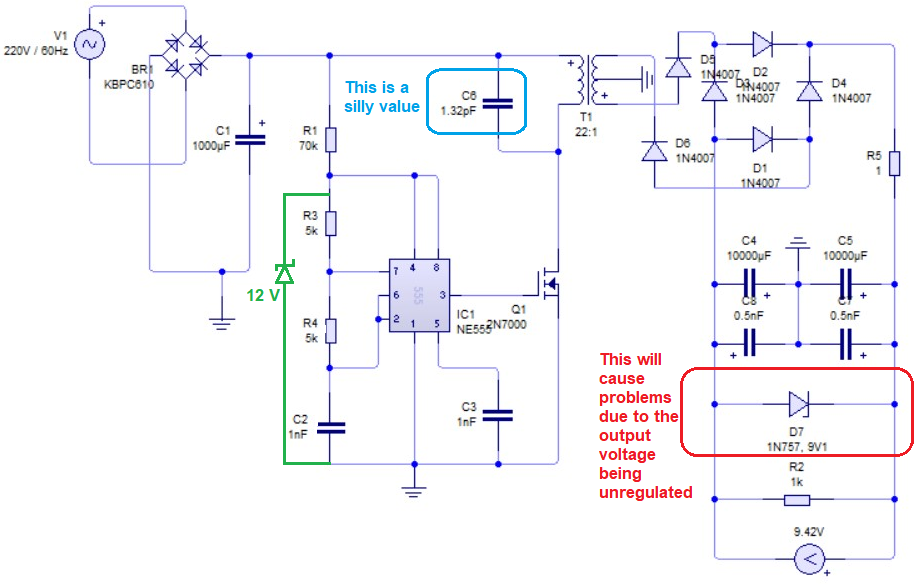Why do my MOSFET keep blowing up saying the gate-drain voltage exceeds its rating?
You are rectifying and smoothing 220 volts. This produces a DC voltage of over 300 volts and, you are hoping to switching the primary of the transformer with a 2N7000 that is rated for 60 volts. This will always end in failure.
When the 2N7000 deactivates, the voltage at the drain would naturally rise above 400 volts and, that will destroy the MOSFET in an instant.
What should I do? What am I doing wrong?
Pick a MOSFET with a voltage rating of more like 650 volts and use a diode-RC clamp circuit across the primary. In addition, your circuit is a flyback converter (due to D5 and D6) thus, adding a bridge rectifier on the output is really pointless. Use a fast diode for D5, ditch D6 and ditch the bridge rectifier formed by D1 to D4.
Neither can you produce a split output rail with this type of configuration without more secondary windings. There appears to be several other mistakes that I've summarised in the diagram below: -
The main one being that you need something like a 12 volt zener diode to regulate the supply to the 555 timer.

